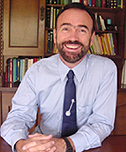After finishing my masters degree with the successful acceptance of my thesis about Unserdeutsch (Rabaul Creole German), I pursued little further research on the language. I accepted a job at Aiyura National High School in the PNG Eastern HIghlands, and was kept busy settling into a new country, becoming fluent in Tok Pisin, starting a new family, and eventually starting doctoral work on the Nalik language of New Ireland, an Austronesian vernacular that was only sparsely documented in the 1980s.
By the beginning of the 21st century, however, I was professor of languages at the Gifu Shotoku Gakuen University in Japan. Over the years a number of graduate students from German-speaking Europe found their way to me through Internet searches. They were interested in Rabaul Creole German and often wanted to check one or another characteristic of the language. One, Friedel Martin Frowein,was especially keen and much more computer-savvy than me. He put up a website with the support of the German Gesellschaft für Bedrohte Sprachen (Society for Endangered Langauges). This website is still active at: http://www.uni-koeln.de/gbs/unserdeutsch/index.html. It has a number of papers about Unserdeutsch, as well as digitalised copies of some of the recordings I made during the 1970s.
Through this website the number of people who have become aware of the language has steadily increased. Among the people who have contacted me through this website was a reporter for the Frankfurter Allgemeine Zeitung, who wrote about the language in the context of modern German attitudes towards cultural identity ad integration in a multicultural society.
Tuesday 15 December 2009
Tuesday 1 December 2009
Documenting Unserdeutsch
By the time I went to PNG for the first time in 1979, I knew that I was going to be the first linguist to try to document Rabaul Creole German / Unserdeutsch. Through a colleague in Australia who had taught in Rabaul, I was able to swap houses and a car with an Australian teacher who was teaching in Rabaul.
This was my first experience with the wonderfully chaotic and generous world of expats in PNG. Generous because we had a big house and a car to use for three weeks, a real help in getting around the Gazelle Peninsula to interview people. Chaotic-- well, when we went to take a shower, we found that someone had forgotten his/her false teeth in the shower. I had a great image of someone going toothless for an entire trip to Australia....
Another teacher, Veronica, with ties to the Unserdeutsch-speaking community (her husband was of mixed German-PNG background) spent many days introducing people to me to interview.
I used two methods to get data. With some people I gave sentences in Tok Pisin or English and asked them to translate the sentences into Unserdeutsch. These sentences were chosen to try to see to what extent sentence structures and vocabulary were like either German or Tok Pisin. With other people I used some stimulus (a picture book or photos) to record an extended monologue or story.
The original tapes were deposited with the MGATA dialect tape collection at the University of Queensland library. The library threw the tapes out at some date when it decided to move the MGATA collection to another university. Luckily I hd made copies, but these were not kept in a good environment, and not all tapes were copied. Some of these tapes are now on the Unserdeutsch website discussed earlier.
This was my first experience with the wonderfully chaotic and generous world of expats in PNG. Generous because we had a big house and a car to use for three weeks, a real help in getting around the Gazelle Peninsula to interview people. Chaotic-- well, when we went to take a shower, we found that someone had forgotten his/her false teeth in the shower. I had a great image of someone going toothless for an entire trip to Australia....
Another teacher, Veronica, with ties to the Unserdeutsch-speaking community (her husband was of mixed German-PNG background) spent many days introducing people to me to interview.
I used two methods to get data. With some people I gave sentences in Tok Pisin or English and asked them to translate the sentences into Unserdeutsch. These sentences were chosen to try to see to what extent sentence structures and vocabulary were like either German or Tok Pisin. With other people I used some stimulus (a picture book or photos) to record an extended monologue or story.
The original tapes were deposited with the MGATA dialect tape collection at the University of Queensland library. The library threw the tapes out at some date when it decided to move the MGATA collection to another university. Luckily I hd made copies, but these were not kept in a good environment, and not all tapes were copied. Some of these tapes are now on the Unserdeutsch website discussed earlier.
Subscribe to:
Posts (Atom)
